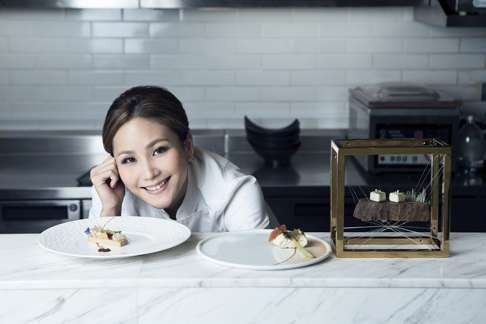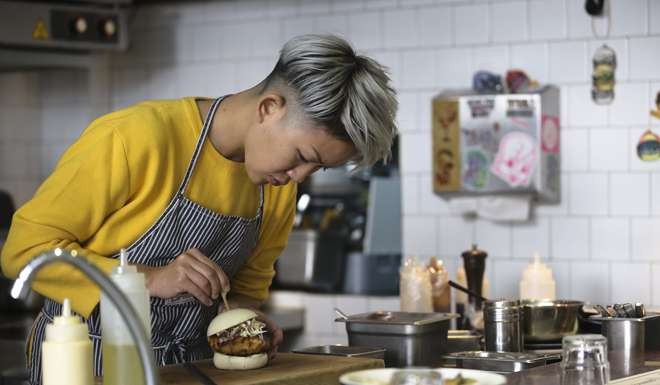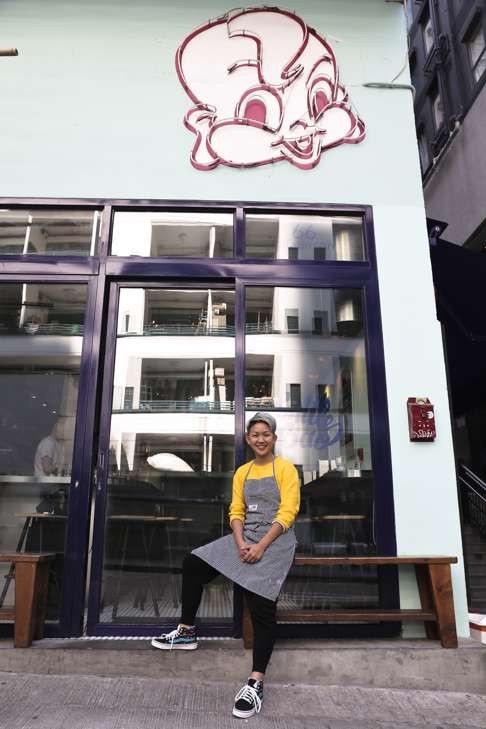Female Hong Kong chef takes top award in Asia – and breaks the glass ceiling in a man’s world
Little Bao’s May Chow is leading a new generation of female chefs in the city who are battling against cultural stereotypes

Increasing numbers of young women are training to become chefs in the city but they still face barriers to achieving high-level success, industry insiders say.
The International Culinary Institute, part of the government-funded Vocational Training Council, has observed the number of women enrolling in cooking courses double in just over a decade.
Between 2013 and last year, about 40 per cent of students enrolled in the institute’s courses were female. This marked a significant increase from 2004 to 2007, when just 20 per cent were women on courses run by the institute’s sister organisation, the Hospitality Industry Training and Development Centre, since renamed the Hotel and Tourism Institute.
The figures were released to the South China Morning Post soon after May Chow, owner of Little Bao restaurant in Central, was voted Asia’s best female chef for 2017 by more than 300 culinary experts in a list published by William Reed Business Media.
Local parents don’t want their kids, especially women, to be part of the kitchen because they have this misconception that chefs have a bad lifestyle of drugs and gambling
Born in Hong Kong, the young chef has been praised for her innovative take on the Chinese steamed bun. Despite her success, she said she still considered herself to be part of a “limited” group of female chefs in Asia, partly because young women were not often being encouraged to pursue a career in the food industry.
“Local parents don’t want their kids, especially women, to be part of the kitchen because they have this misconception that chefs have a bad lifestyle of drugs and gambling,” she said. “On top of that, the hours are long and the pay is low.
“Asian parents highly disagree with this career choice and would prefer their children to become doctors or lawyers. It takes a very strong passion and dedication to ignore these voices. I know this mentality is slowly changing in Asia.”
Chow said female chefs in Hong Kong continued to face a glass ceiling, with few working as executive chefs in top restaurants and hotels.
“I talk to a lot of younger female chefs and I think some of them think with passion and don’t dare to ask about salary because they believe this type of discussion will make their boss have the wrong idea about them,” she said. “Yet I’ve seen more maturity in younger female chefs than younger male chefs. Very broadly speaking, I think we have much less ego compared to men but probably more emotions when making decisions.”
The institute’s tutors report aspiring female chefs are far more likely to sign up for an international cuisine programme than a Chinese cooking course at the neighbouring Chinese Culinary Institute.
They are also more likely to opt for bakery and pastry courses than studying a particular cuisine. In the last academic year, 58 per cent of students on the institute’s bakery, pastry and confectionery courses were female. Their preference for baking, industry insiders say, may be linked to global cultural stereotypes around “feminine” types of cooking.
I find young female chefs to be more diligent but less confident maybe
The tendency for fewer female chefs to pursue a career in Chinese cooking, they suggest, may be due to girls being brought up to think they will not be physically capable of carrying the equipment needed, such as heavy woks.
The institute boasts some impressive alumni who have gone on to work at Michelin-starred restaurants or started their own businesses, but almost all of these leading Chinese cuisine chefs are male, as are most of the teachers.
Suzanne Ayer Storms, the institute’s principal instructor of international cuisine, said lack of confidence may be holding back young women. “I find young female chefs to be more diligent but less confident maybe,” she said. “You would hope there would be no reason to feel like that, whereas the boys think it comes easily to them. It is important that our kitchens are extremely open and inclusive. You never really know who is going to be the next big chef.”
Ayer Storms said privileges in education were undoubtedly still influential in the industry, with most of Hong Kong’s notable female chefs studying at prestigious institutions that enabled them to train under some of the world’s most respected chefs.
While working in kitchens across America and later in Beijing, she said she generally had to fight for respect from male colleagues and for opportunities in the kitchen. “Having been a chef for a long time, I do not really think there are differences between men and women in the kitchen,” she said. “But I think there is a change that goes on in the workplace. In my career, I have been hired sometimes because they wanted to change the dynamic. I think a generally diverse kitchen is really beneficial.”

Vicky Leung Tsui-yan, chairwoman of the Hong Kong Young Chefs Club, said female graduates will also find it hard to advance through the ranks because male chefs at the top stay there for decades.
Leung said long working hours meant it was difficult to obtain a good work-life balance, and having a family whilst working full-time was almost impossible. She recalled one of her university lecturers telling students that they should not think about having a boyfriend. “That lecturer, that man, was still single as well,” she said. “I think that’s the choice when you go into this industry; that you go for a single [life] forever.”
Nonetheless, Hong Kong continues to offer huge opportunity for its aspiring chefs. There are more than 12,000 restaurants in the city and new businesses are opening all the time.

Vicky Lau, head chef at Tate Dining Room and Bar in Hong Kong, was awarded the title of Asia’s best female chef in 2015. She said she had worked with increasing numbers of female chefs in the city, but her customers were still sometimes visibly surprised when she revealed her identity.
“Women in Hong Kong are not encouraged to do this kind of physical work,” she said. “For the older generation, this would not be the go-to career.
“But I think as long as you are passionate you can make it as a chef here. In Hong Kong it is not a problem. I try to tell young female sous-chefs [second in command] not to just do pastry because they may think it is more acceptable as a woman.”
Lau, who retrained as a chef after initially pursuing a career in graphic design, said she had been “fortunate” so far not to encounter sexism during her career. “The chefs I have worked with have always been very encouraging,” she said.
She would advise young female chefs not to let their gender become a barrier to success in the Hong Kong catering industry.“I think it is all about the food,” she said. “The rest is not that important.”
Additional reporting by Sarah Zheng
